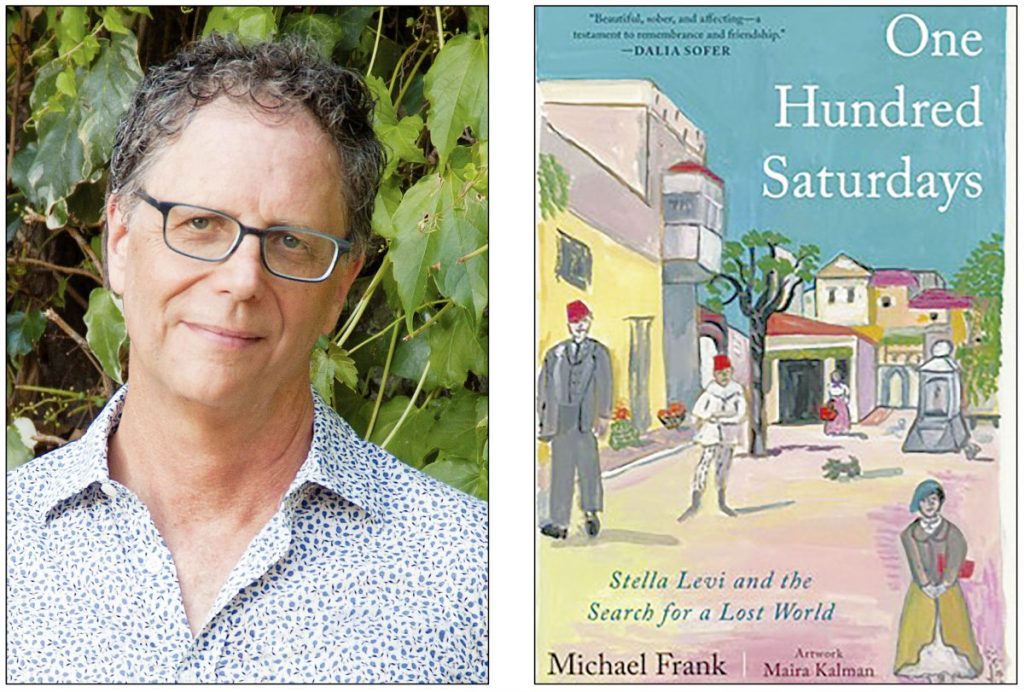Kaitlyn Finchler
Staff writer
The story of the island of Rhodes has been unknown by many for decades. Stella Levi, 100-year-old Judeo-Spanish Holocaust survivor, has told her story — and the story of her home — with the help of author Michael Frank in One Hundred Saturdays: Stella Levi and the Search for a Lost World, Week One’s pick for the Chautauqua Literary and Scientific Circle.

Frank will deliver his CSLC presentation at 3:30 p.m. today in the Hall of Philosophy. One Hundred Saturdays received the Jewish Book Council’s Natan Notable Book Award and was one of The Wall Street Journal’s top 10 books of 2022.
“A mutual friend put us in touch,” Frank said. “She told me yet another story and I saw a modern-day Scheherazade, Stella — that she had an incredible gift for storytelling.”
Stella has a way of evoking the “remarkable lost world,” he said.
Rhodes has a long history of colonization. In 1523 the Ottomans took control of the island, remaining in power until 1912. Then, the Italians overtook Rhodes in World War I.
After this, the Nazis gained control and exiled all Sephardic Jews to various concentration camps in Europe. In 1947, Rhodes and all Dodecanese Islands became part of the Greek state.
“I was just interested in this fascinating older woman who had lived in this world that had been destroyed by the Nazis in July of 1944,” Frank said. “A world that still lived in her. A world that she could see with her eyes and her memory that she could evoke.”
Frank said he “fell under a state of enchantment” when talking with Stella, and he thought her story could be turned into a book after six years of meeting on Saturdays.
“I was very deeply struck by the fact that we’re seven decades, almost eight decades out now from the end of (World War II), and there are still emerging stories that are not as well known as they should be,” Frank said.
Naturally intrigued by what he didn’t previously know, Frank said Stella was a worthy person to tell a story equally as worthy.
“This book, of course, would not exist without Stella’s contribution,” Frank said. “I’m always very careful to say (the book) is not Stella. This is my version, my portrait of my experience with Stella, which is something quite different.”
Frank said everyone has powerful encounters throughout their lives. His encounter with Stella was with her cooperation, collaboration and approval.
Their relationship was built on trust, and they had to get to know each other on a deeper level.
“Over time we developed a tenderness for each other and trusted each other,” Frank said. “It has been challenging and we’re both complicated people.”
Sony Ton-Aime, the Michael I. Rudell Director of Literary Arts, said Stella and Frank’s friendship is apparent, and prominent, in the book.
“You see the friendship, you see the ease between them, and you come to accept all of this and come to be part of it,” Ton-Aime said. “It’s like a warm embrace.”
In the pursuit of gaining Stella’s trust, Frank said he realized she trusted him when she agreed to talk about her time in Auschwitz.
“(Auschwitz) was a topic that she was hesitant to talk about, that she didn’t want to spend a lot of time talking about,” Frank said. “But once she started, she spoke about it in great detail and with great vividness.”
After six years of meetings, in 2021 Frank decided to sit down and write One Hundred Saturdays. Simultaneously, he was the listener, and now the storyteller.
“When I had a draft, I read it to her and she read it on her own,” Frank said. “She offered corrections, adjustments, amplifications (and) more stories.”
Frank said the editing process was comparable to sitting around a campfire in ancient Greece. He made sure to absorb Stella’s life, the story of her people, and retold it “as accurately as I could.”
Very careful in his description of the book, Frank said it is not a memoir, nor a biography or autobiography or history book. It’s his encounter.
“People really are moved by Stella and her story,” Frank said. “They’re moved to learn and fascinated to learn about this lost Sephardic world. They consider it an addition, in its way, to the literature of the war period.”




